Social Good Award
Anita Parapunova, Amy Cherguit, Claudia Rist, Michelle Sheng The Wayfinding Hub
-
Tauira / Students
Anita Parapunova, Amy Cherguit, Claudia Rist, Michelle Sheng -
Kaiako / Lecturers
Steve Reay, Cassie Khoo
-
Client
North Shore Hospital -
School
AUT Art + Design
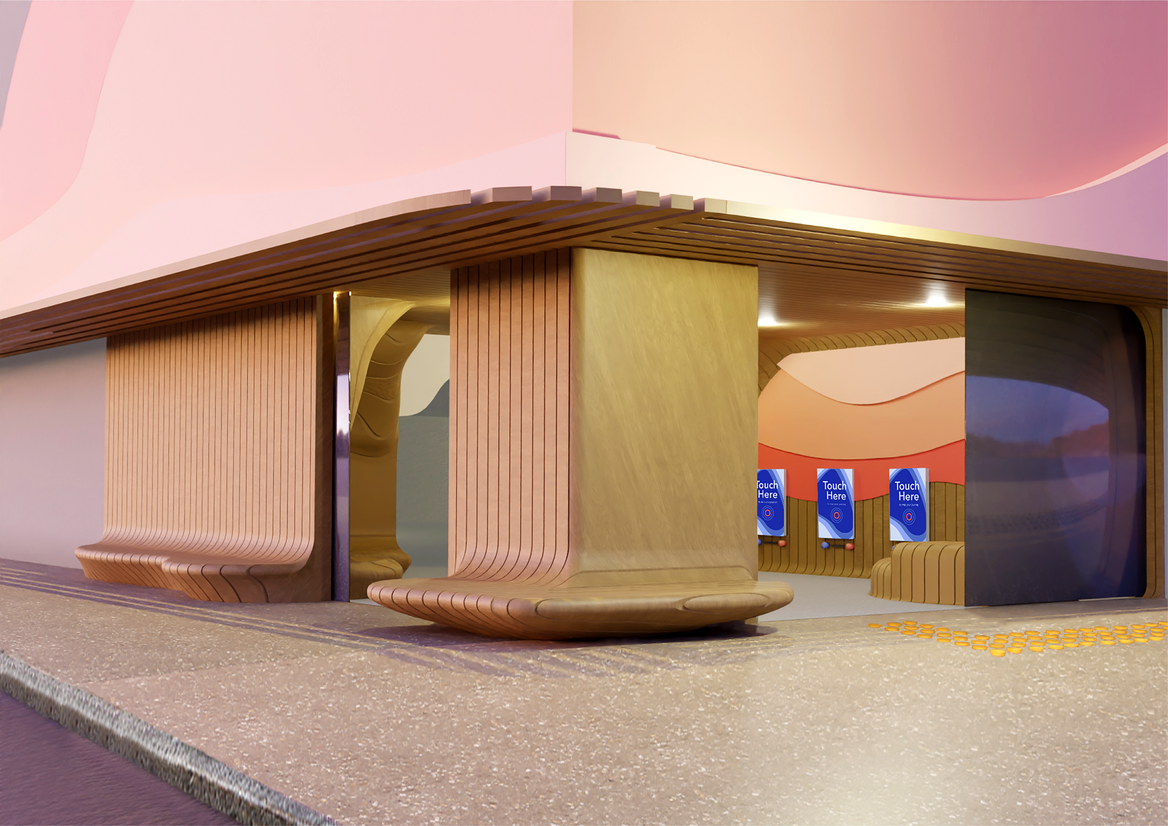
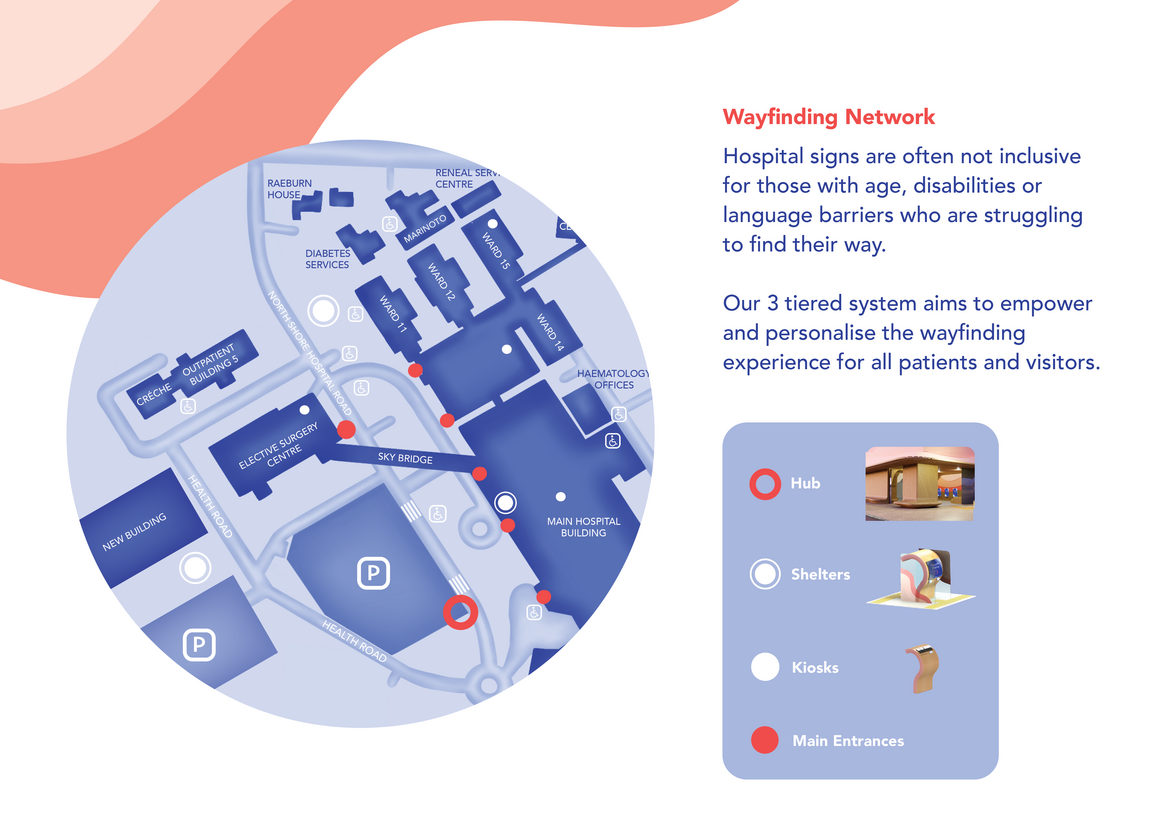
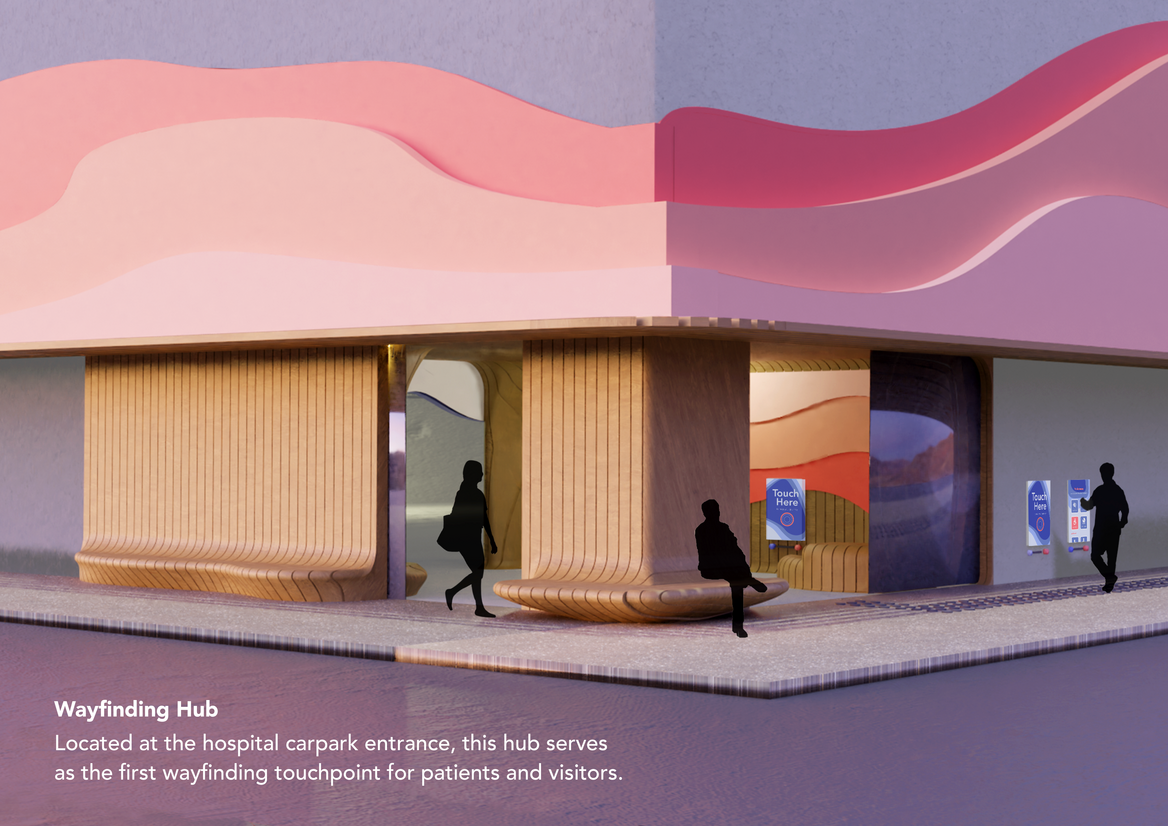
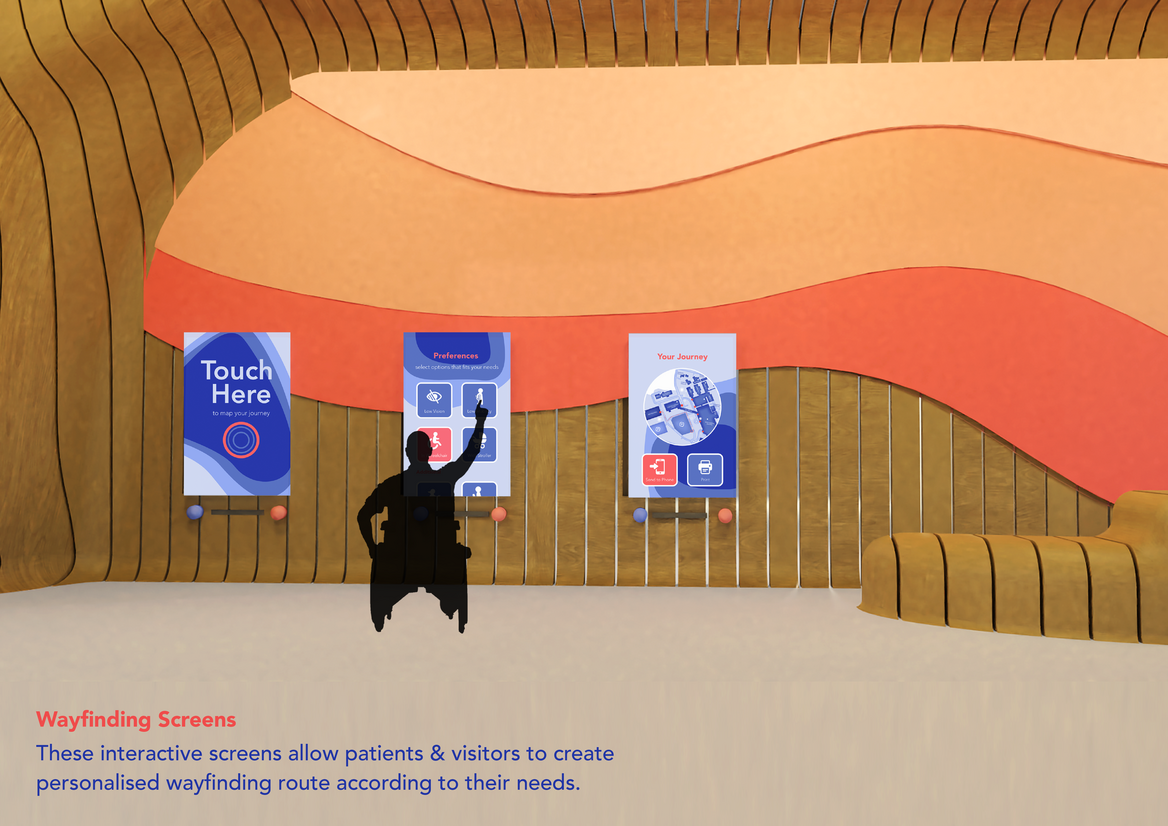
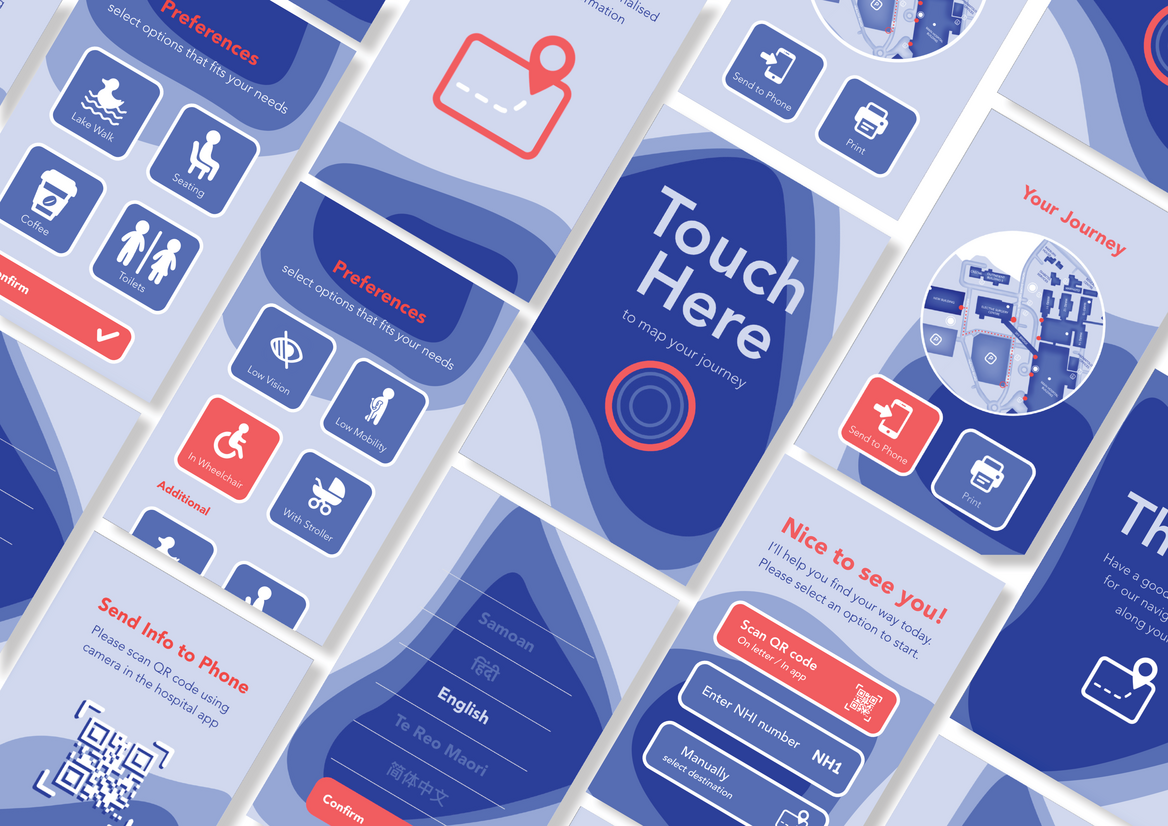
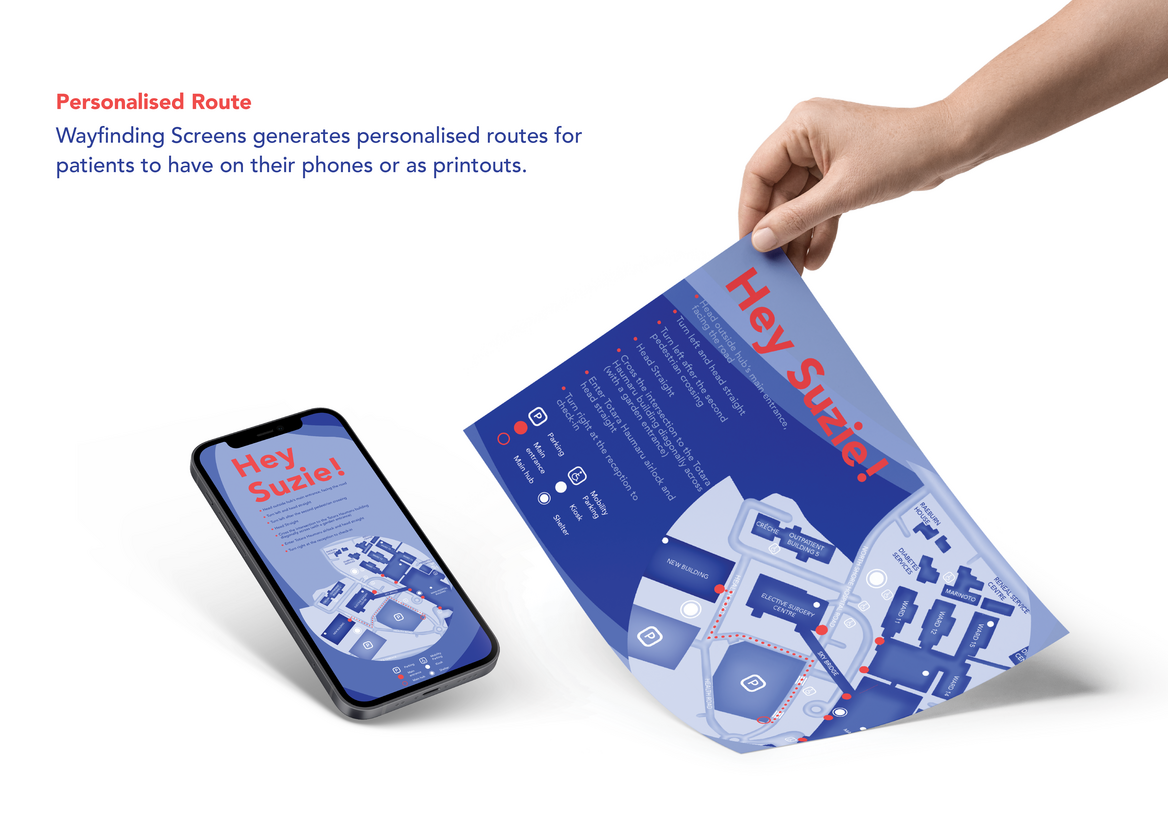
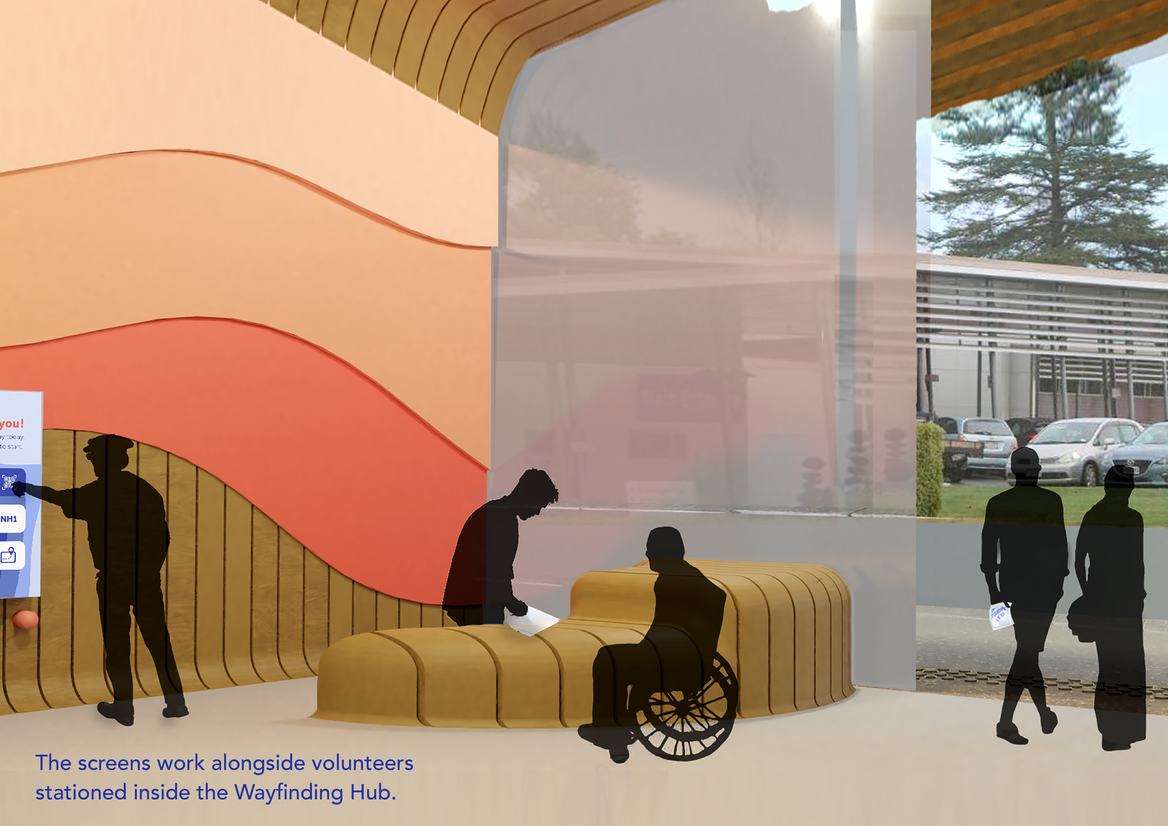
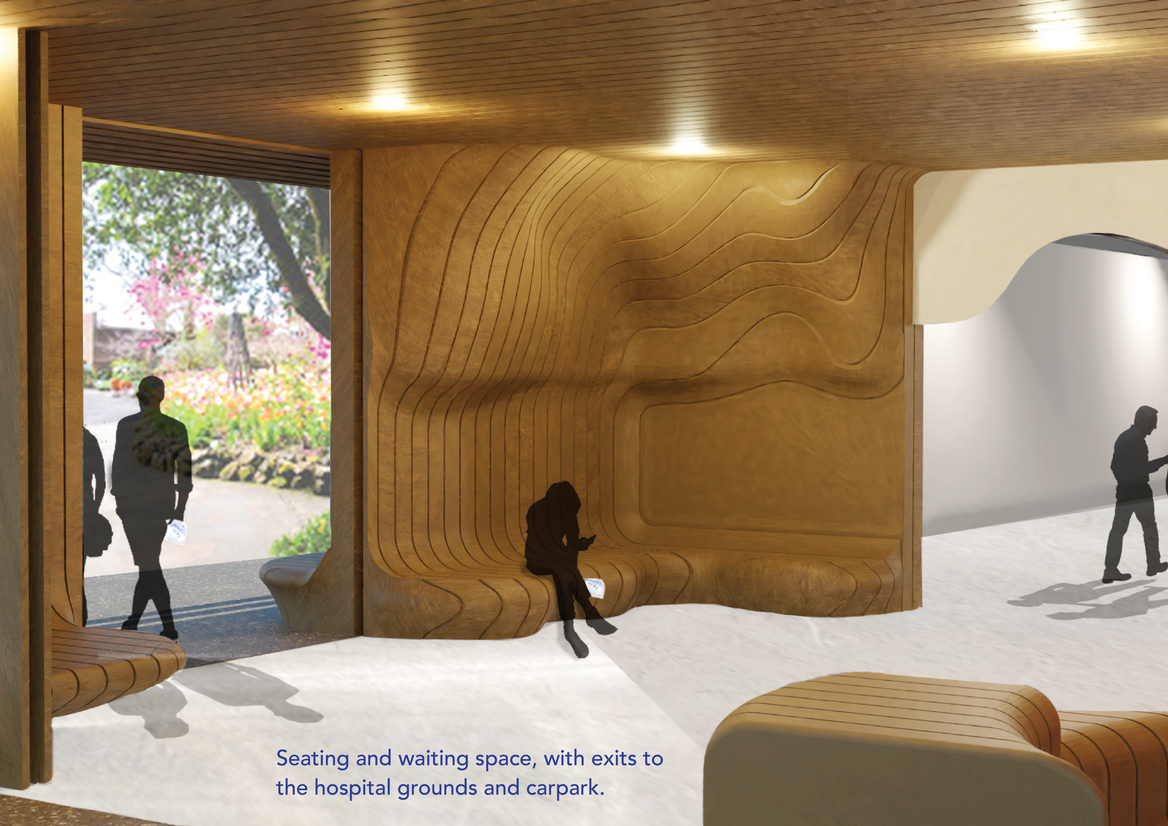
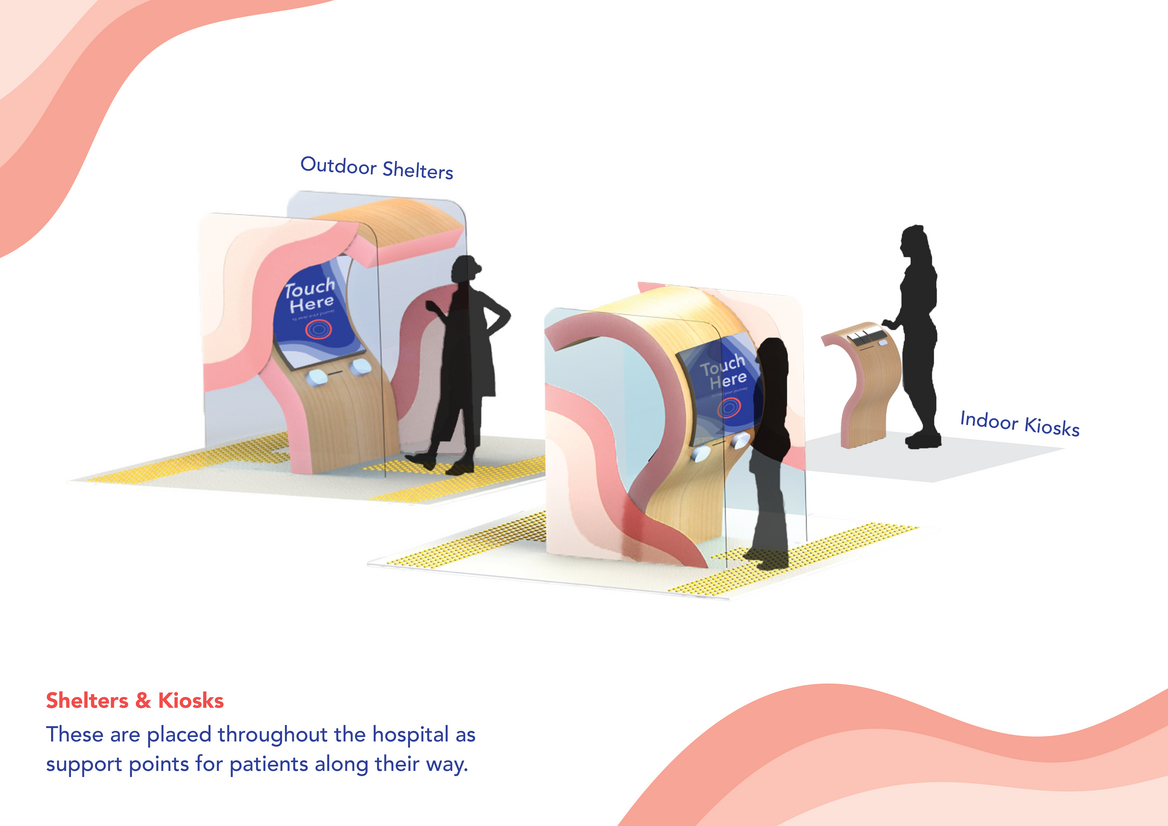
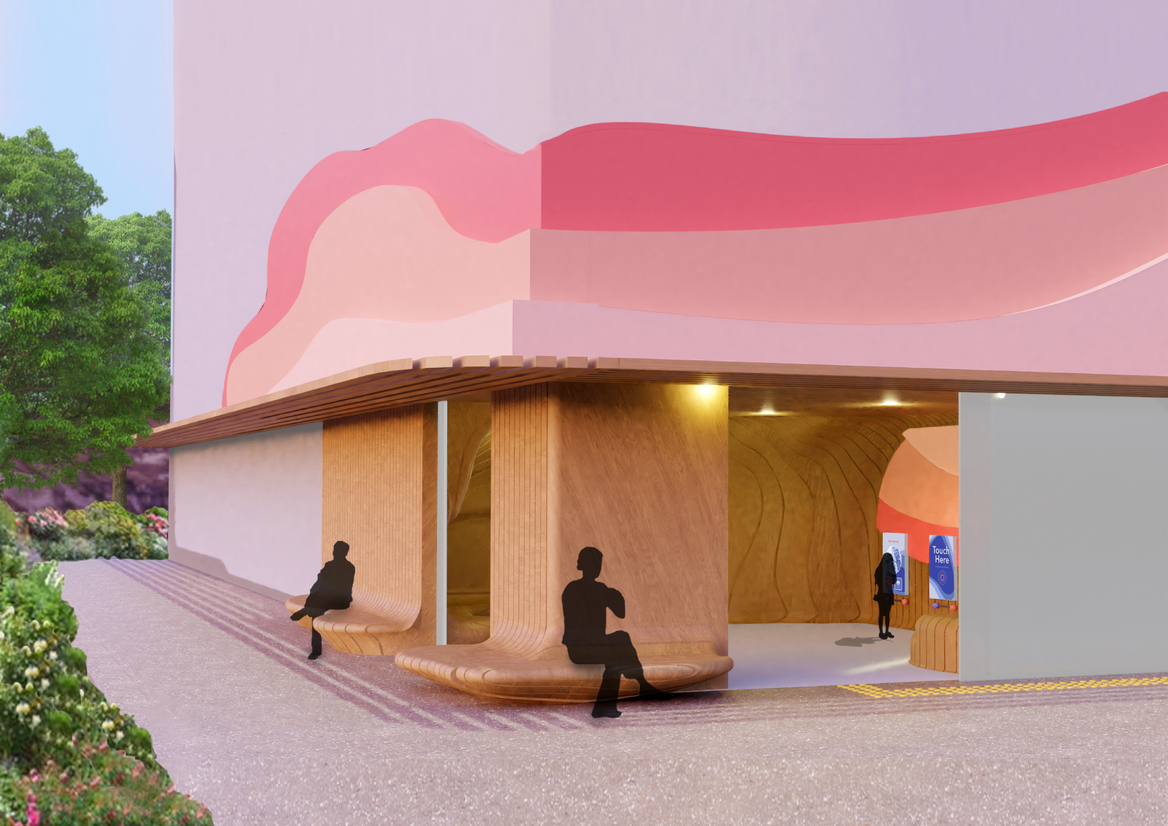
Description:
The future of healthcare is exciting, from artificial intelligence to automated healthcare hubs. This project considers this from the start and asks how do we create the future of healthcare a feasible reality which can be implemented today? This project proposes a multi-site hospital wayfinding system that provides personalised and customisable wayfinding for everyone, but particularly those living with disabilities, age and language barriers. We observed that current wayfinding accommodates able-bodied, English speaking users, depicted through their over-reliance on textual signage and verbal instructions.
Our proposal invites Hospital patients and visitors to begin their campus journey at a central Wayfinding Hub located at the hospital carpark entrance beside the public transport stops. Visitors will be drawn to the Wayfinding hub with tactile paving, into an inviting open space. Organic forms take away from the cold, clinical feeling people often expect in healthcare institutions. Inside the hub are three interactive wayfinding screens that allows users to create their personalised wayfinding route. Users first select their language. Then they are guided through a range of preference options . For example, 'low vision', 'with stroller', 'stop at bathroom' or 'stop at cafe'. These selections are automatically saved for subsequently visits as the system builds and ongoing user profile. The screens generate an ‘ideal’ route, which can be sent to phones or can be printed out. Below each screen, there are two buttons — one for emergencies and one for assistance. Further help is also available from the volunteer stationed at the hub’s main help desk.
As well as the central Wayfinding Hub, we have designed smaller indoor kiosks and outdoor shelters as supporting wayfinding touchpoints, conveniently dispersed throughout the hospital. The kiosks and shelters also have wayfinding screens, if users lost on their way to their destination. By scanning an QR code on the screens, users can be redirected to their destination from wherever they are.
As a group where three out of four of our parents don’t speak English as their first language, the emphasis on inclusion is one so close to our hearts. We have worked to redesign wayfinding in a way that is inclusive and accessible for all types of patients and visitors. We believe that this system will allow people to feel supported and empowered to navigate themselves, and more positively perceive hospitals in general.